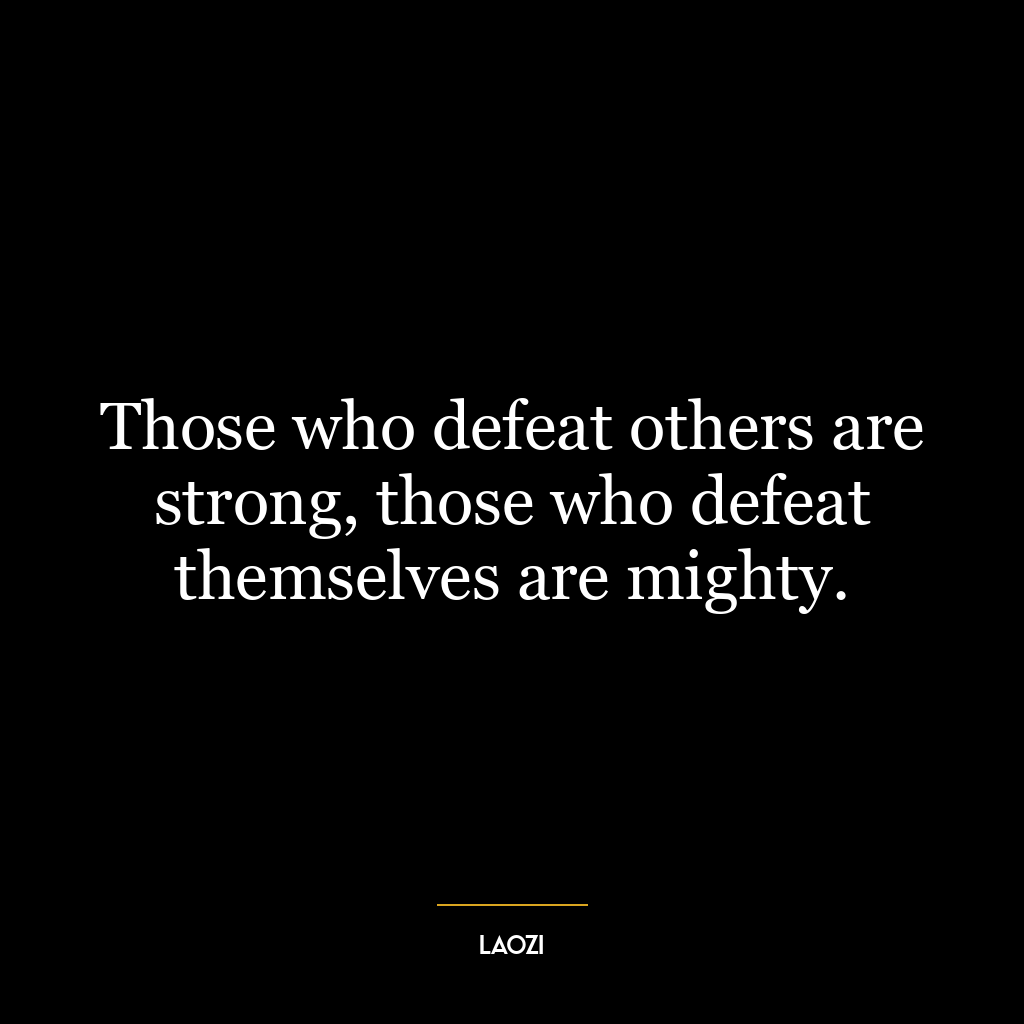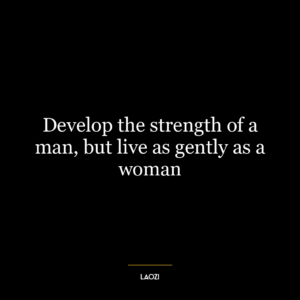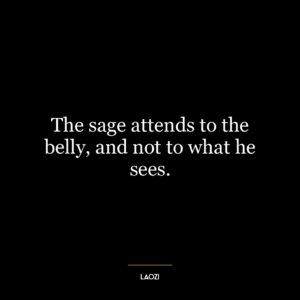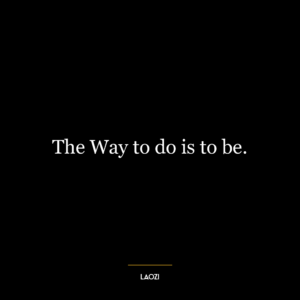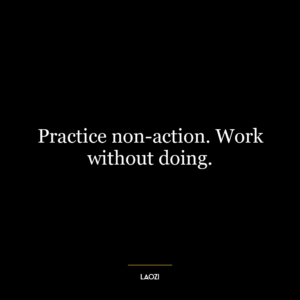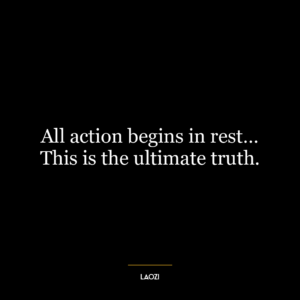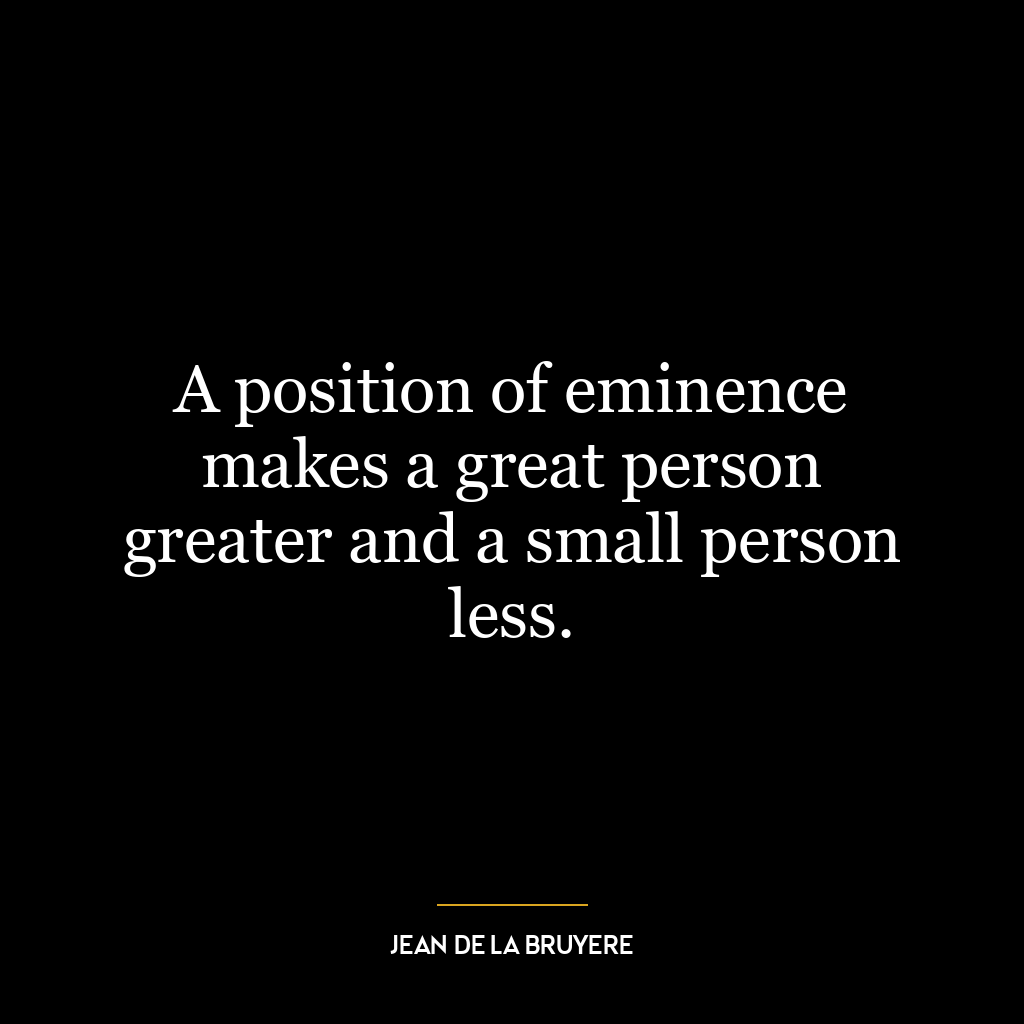Those who defeat others are strong, those who defeat themselves are mighty.
This quote essentially conveys the idea that it takes more strength to conquer one’s own shortcomings than to conquer other people. The first part of the quote, “those who defeat others are strong,” suggests that it requires strength to overcome external challenges and adversaries. This could be in the form of physical strength, mental resilience, or strategic intelligence. However, it’s the second part of the quote, “those who defeat themselves are mighty,” that really drives the point home.
Defeating oneself here does not mean self-destruction or self-sabotage. Rather, it refers to the ability to overcome one’s own weaknesses, fears, and negative tendencies. This could be in the form of bad habits, procrastination, lack of self-discipline, or any other internal obstacles that prevent us from reaching our full potential. It’s about self-improvement and personal growth, and it’s often a more difficult battle than any external conflict because it requires deep introspection, honesty with oneself, and the courage to face and change aspects of ourselves that we may not like.
In today’s world, this idea is more relevant than ever. We live in a competitive society where there’s a lot of emphasis on defeating others to be successful, whether it’s in business, politics, or even personal relationships. However, true success and fulfillment often come from personal growth and self-improvement, not from outdoing others.
In terms of personal development, this quote can be a powerful guiding principle. Instead of focusing on competing with others, we can focus on becoming better versions of ourselves. This could mean overcoming our fears, breaking bad habits, developing new skills, or simply becoming more compassionate and understanding. It’s a lifelong journey, but it’s one that leads to true strength and might, according to Laozi.

